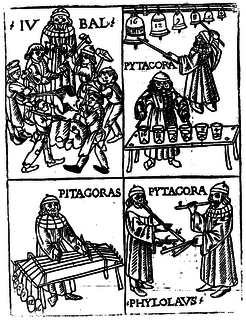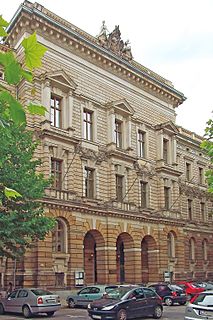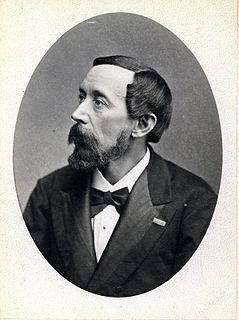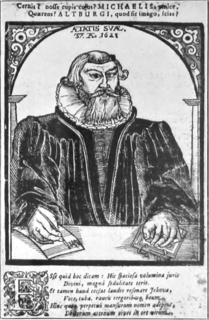
Johann Christian Lobe (May 30, 1797 – July 27, 1881) was a German composer, music theorist, and writer.

Germany, officially the Federal Republic of Germany, is a country in Central and Western Europe, lying between the Baltic and North Seas to the north, and the Alps to the south. It borders Denmark to the north, Poland and the Czech Republic to the east, Austria and Switzerland to the south, France to the southwest, and Luxembourg, Belgium and the Netherlands to the west.

A composer is a musician who is an author of music in any form, including vocal music, instrumental music, electronic music, and music which combines multiple forms. A composer may create music in any music genre, including, for example, classical music, musical theatre, blues, folk music, jazz, and popular music. Composers often express their works in a written musical score using musical notation.

Music theory is the study of the practices and possibilities of music. The Oxford Companion to Music describes three interrelated uses of the term "music theory":
The first is what is otherwise called 'rudiments', currently taught as the elements of notation, of key signatures, of time signatures, of rhythmic notation, and so on. [...] The second is the study of writings about music from ancient times onwards. [...] The third is an area of current musicological study that seeks to define processes and general principles in music — a sphere of research that can be distinguished from analysis in that it takes as its starting-point not the individual work or performance but the fundamental materials from which it is built.
Born in Weimar, Lobe was the son of a book illustrator. [1] He was either self-taught as a musician (Anon. 1885–92) or had music lessons from the age of seven (Brandt 2001). In 1810, he became violinist in the Weimar Court Orchestra (Anon. 1885–92), or else was a flautist and joined the Weimar orchestra in 1811 (Brandt 2001). He composed many musical works before 1819 (Brandt 2001), and debuted as a composer in 1821, with the opera Wittekind, which was followed by a number of others, including Die Flibustier (1830) and Die Fürstin von Granada (1833), as well as some orchestral works (Anon. 1885–92). Die Fürstin von Grenada was especially successful (Brandt 2001). Either in 1842 (Anon. 1885–92) or 1845 (Brandt 2001) he retired from his position in the Weimar orchestra, was appointed a professor and in 1846 moved to Leipzig, where he worked as a music-composition teacher and music critic (Anon. 1885–92; Brandt 2001). He is today best remembered for his writings on music, of which his most important work is Lehrbuch der musikalischen Komposition (Textbook on Music Composition, 4 vols., 1850–67). He died in Leipzig in 1881.

Weimar is a city in the federal state of Thuringia, Germany. It is located in Central Germany between Erfurt in the west and Jena in the east, approximately 80 kilometres southwest of Leipzig, 170 kilometres north of Nuremberg and 170 kilometres west of Dresden. Together with the neighbour-cities Erfurt and Jena it forms the central metropolitan area of Thuringia with approximately 500,000 inhabitants, whereas the city itself counts a population of 65,000. Weimar is well known because of its large cultural heritage and its importance in German history.

Opera is a form of theatre in which music has a leading role and the parts are taken by singers, but is distinct from musical theater. Such a "work" is typically a collaboration between a composer and a librettist and incorporates a number of the performing arts, such as acting, scenery, costume, and sometimes dance or ballet. The performance is typically given in an opera house, accompanied by an orchestra or smaller musical ensemble, which since the early 19th century has been led by a conductor.

Leipzig is the most populous city in the federal state of Saxony, Germany. With a population of 581,980 inhabitants as of 2017, it is Germany's tenth most populous city. Leipzig is located about 160 kilometres (99 mi) southwest of Berlin at the confluence of the White Elster, Pleiße and Parthe rivers at the southern end of the North German Plain.








